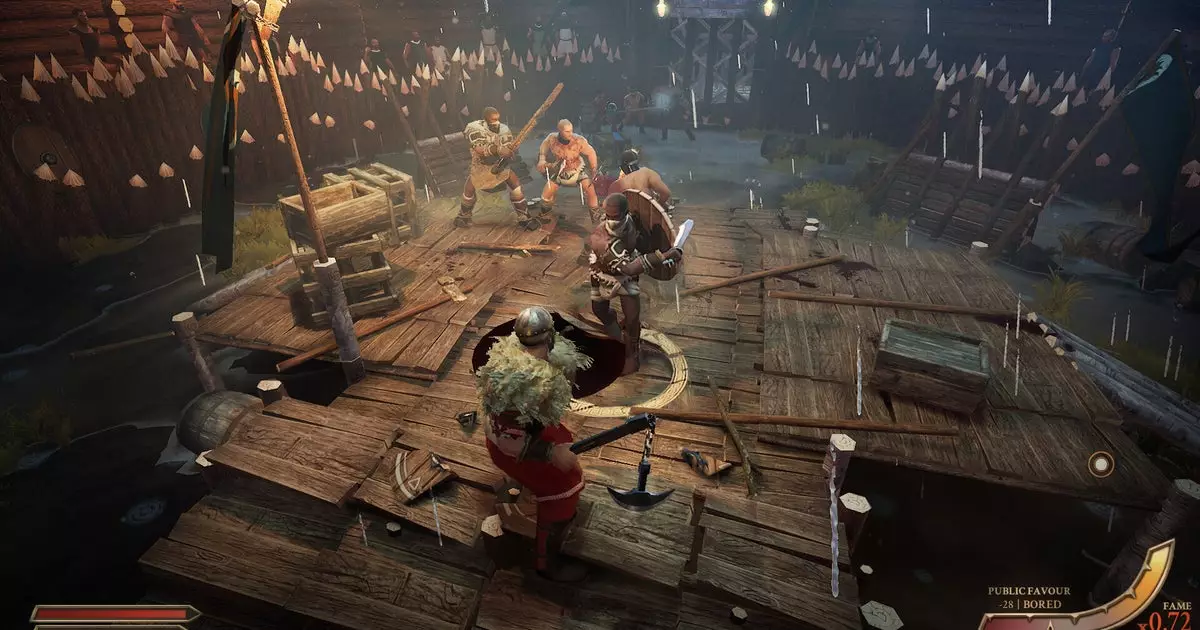When it comes to roguelike RPGs, few titles manage to blend the thrill of combat with nuanced character progression as beautifully as *We Who Are About To Die*. The latest update has introduced a plethora of new features that have caught the attention of both seasoned players and newcomers alike. To add to the festivities, the game is now available at a 30% discount, making the prospect of diving into this gladiatorial challenge even more enticing. However, whether these updates signify substantial improvements to the gameplay or just minor tweaks remains a point of contention.
This game has hovered enticingly on my wish list since it entered early access, a siren song of swordplay and strategy. Finally, I decided to step into the arena, ready to face whatever challenges awaited me. As it turns out, the experience is nothing short of exhilarating. The Steam demo acts as a perfect entry point, capturing the essence of combat that many players will find both accessible and delightfully challenging.
The combat mechanics in *We Who Are About To Die* are surprisingly dynamic. The swordplay feels reminiscent of titles like *Chivalry 2* and *Kingdom Come: Deliverance*, yet it carries its unique flavor. Players engage in directional slashes while managing their defenses by targeting opponent weapons. The system strikes a balance between chaotic action and calculated dueling, requiring players to be strategic about their moves. Stamina management adds another layer of complexity, preventing players from becoming too reckless with their attacks.
Yet, as I dove into my first duel, I was left with an acute sense of my limitations as a gladiator. I managed to triumph in my initial encounter, but the subsequent melee event felt overwhelmingly chaotic. Rather than charging head-on into the fray, I found success in lurking at the periphery, strategically targeting enemies already engaged with my allies. The game’s physics lend an air of comicality to the violence; injured opponents tumble dramatically, heightening the absurdity of my clumsy attempts at victory.
One of my unexpected joys emerged from simply hurling rocks at unsuspecting opponents. The mechanics allow players to drop weapons and throw projectiles, albeit with questionable accuracy. Despite numerous failed attempts to hit my target, the thrill of finally landing a successful throw was immensely satisfying.
Management and Growth: Far More Than Just Fighting
The depth of *We Who Are About To Die* extends far beyond combat. Players must navigate a management system that intertwines their earnings with character development. After each victorious bout, the urge to invest winnings into better equipment and training creates a satisfying loop of improvement. Players also find themselves seeking favor with various patrons, whose approval can alter the game’s storyline and payouts.
Moreover, there are intriguing progression elements, such as the introduction of character traits. With over 50 random traits available, players can customize and enhance their gladiator’s abilities in fascinating ways. The addition of a character trait overview panel and a trophy system for tracking completion adds layers of depth to character customization that keep players engaged between fights.
The new player weight system introduces a level of strategy previously unexplored, as players can now opt for light or heavy builds, each impacting gameplay. As a result, players can discover diverse playstyles that enable them to tailor their strategy around their unique attributes.
As the game continues to evolve, the patch notes hint at additional content that promises to enrich the experience. New maps, ambush events, and more engage players in dynamic combat experiences. Personally, I am looking forward to the potential of rare events that could lead to unforgettable gameplay moments.
In closing, *We Who Are About To Die* offers a cornucopia of features that make for an engaging gaming experience. There’s a delightful juxtaposition between frantic combat and the strategical elements of character management. Whether a seasoned player or a newcomer, the game presents countless opportunities for growth, making it a title worth considering for those who enjoy roguelike RPGs. As I continue to hone my skills and navigate the trials of the arena, I’m left questioning how the charm of this gladiatorial experience may evolve with my increasing proficiency.

